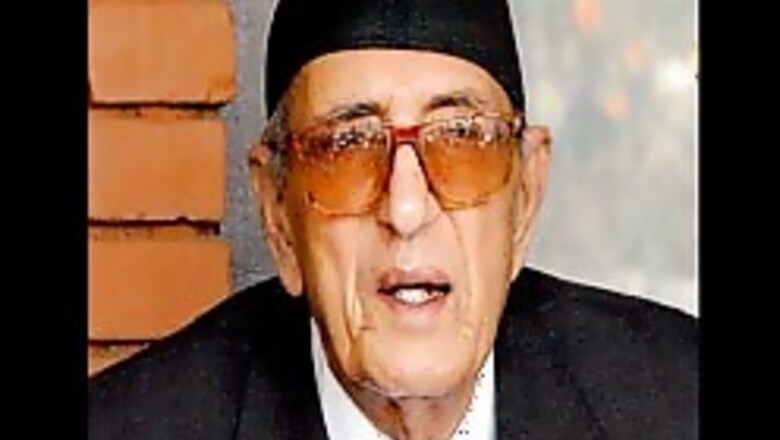
views
Kathmandu: More than two months after constituent assembly elections, Nepal's embattled Prime Minister Girija Prasad Koirala on Thursday tendered his resignation following mounting pressure by the Maoists, paving the way for a new government under the former guerrillas.
The octogenarian leader made a rare appearance in the assembly after zero hour, announcing his resignation in a short speech heavy with emotion.
"When you take a decision, you are relieved of tension and feel light," Koirala told the house. "I have appeared before you feeling lighter."
Referring to the long struggle for a republic and the thousands of lives lost in the struggle, Koirala said he was relinquishing his "sorrow and burden" before the assembly as it was the authority that could soothe the nation's pains and show the way forward.
The Prime Minister, who forged a pact with the Maoists and won kudos for ending the decade-old Maoist uprising but then lost his halo in the ensuing bitter feud for power, said with regret that the parties had deviated from the way that had taken them to the historic election in April and forced King Gyanendra to exit from the palace.
"Long live consensus, cooperation and unity," he said. "They are the way that will take Nepal to its destination. If you proceed minus Girija Prasad Koirala, I have no objection. But don't deviate from the path."
Though Koirala's resignation will clear the way for the Maoists, who emerged as the largest party after the election, to form a new government, it was not clear immediately what would follow now.
Since King Gyanendra's ouster, Nepal doesn't have a head of state. Though the parties have agreed to appoint a president as the new head of state, it is yet to be done.
Some political analysts feel Koirala would continue as ad hoc premier till a president is appointed to relieve him formally of his post.
After months of dispute, the parties have finally agreed to amend the constitution so that a president can be elected on the basis of simple majority in the assembly if the parties fail to reach a consensus.


















Comments
0 comment